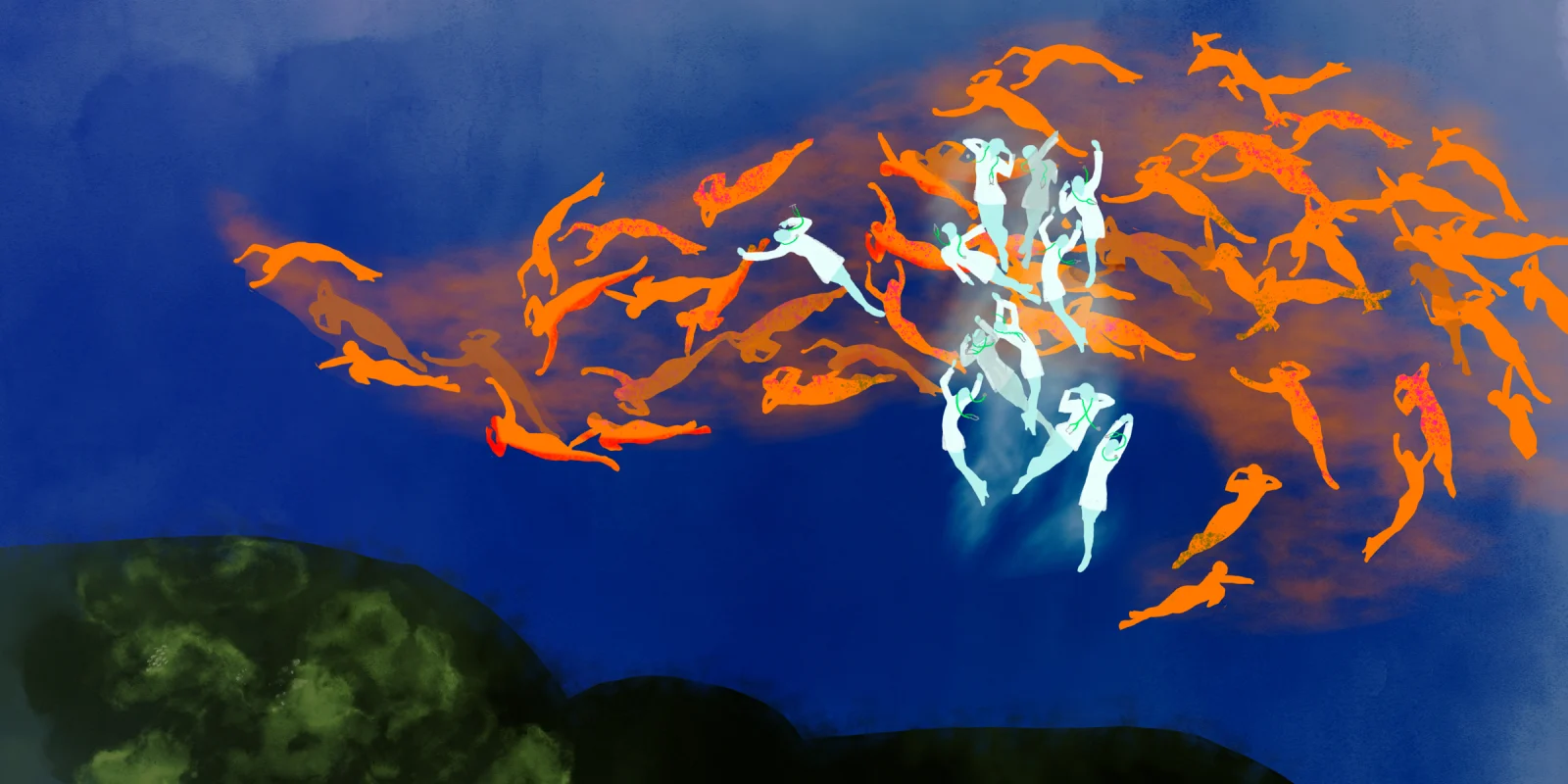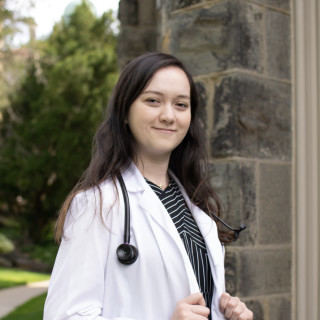It’s easy to imagine that a hospital could be a fishbowl. Microbes cover every surface, the food smells like dried worms, and no matter where you go, you get the feeling of being watched — at least you do when you’re a medical student. If the hospital is a fishbowl, then medical students are the goldfish. Of course, we didn’t plan on becoming goldfish. We went to medical school to become doctors, not gill-bearing aquatic craniates. However, somewhere along the way to becoming doctors of humans, we forgot to be humans ourselves.
At some level, we recognize this phenomenon. The medical humanities attempt to melt medicine with more “human-like” pursuits, such as philosophy and poetry. But why is this necessary? How does a human medical student become a metaphorical goldfish? The mechanism must be the same as how any species arises from another: evolution. A not-so-natural selection, resulting from the competitiveness intrinsic to the medical profession, has cultivated certain traits that are advantageous in medical training and neglected those necessary to be effective medical doctors.
The evolutionary theory of recapitulation states, “ontology recapitulates phylogeny.” In other words, the development of an embryo echoes the evolution of its ancestors. In other words, our evolution begins before we become medical students. The medical profession is time-honored, well-regarded, and highly coveted. The AAMC reports over 50,000 medical school applications each year, and that number keeps growing. The ideal medical school applicant is ambitious, academically gifted, and possesses a strong record of community service and research publications. The heart of the matter is that we have a preconceived idea of what a medical student should be, and that bar is sky high. As pre-meds, we compete to meet these expectations. But trying to fit the mold of a perfect medical student can seem as insurmountable as fitting 50,000 applicants into roughly 21,000 medical school slots. A basic understanding of physics can tell you that forcing matter into a fixed space only results in one thing: pressure — the driver of natural selection.
Students of biology will recall that natural selection means the survival of the fittest and might believe that the pressure on medical student performance will result in stronger, better medical doctors. However, evolutionary biologists know that natural selection has no goal, and is merely the result of environmental factors. In the race to be the fittest medical student, we evolve to suit our highly competitive academic environment but that does not mean we evolve to be better doctors. In 2010, Stohl et al. attempted to link medical school performance with residency performance and could not identify any variables that consistently predicted success. A similar study by Raman et al. found moderate correlations, at best.
With the NRMP reporting applications far exceeding available positions, residency committees need some way to differentiate candidates. However, our current methods to determine who gets which interview subjugates students to what the environmentalist Chip Ward calls “the tyranny of the quantifiable,” when what can be quantified gains priority over what cannot. Here’s what can be quantified: board scores, clerkship grades, publication counts, and extracurricular activities. Here are what cannot: meaningful connections with patients, listening skills, humility, morality, and definitively countless other traits that make us decent human beings rather than machines with board scores over 250 and all honors. But from a medical student perspective, the unquantifiable seems of distant concern. There is one major predator to which we all fall prey: the residency Match. Thus, we sit in corners answering UWorld questions instead of hearing patients’ life stories, we sacrifice sleep to prepare the perfect presentation, and we fight each other for the most interesting cases in the OR. This is how we become metaphorical goldfish. This is how we lose our humanity.
We’d be fools to think our own dehumanization wouldn’t translate to our patient care. Many experts have noted evidence of the medical profession’s tendency to dehumanize. As Haque et al. writes, “unconscious, unintentional dehumanization of patients can occur as a byproduct of the way humans’ evolved minds interact with present widespread social practices and functional requirements in hospitals.” Dehumanization of patients is clearly a concern, but these widespread social practices must come from somewhere. It is only logical to conclude that the dehumanizers were first dehumanized. The only solution to stop dehumanizing our patients is to stop dehumanizing ourselves. When we reduce ourselves to numbers, when we submit to the tyranny of the quantifiable, we deny ourselves the breadth of our humanity and our full potential as clinicians.
For some medical students, this race for the survival of the fittest becomes all too literal. A 2016 meta-analysis found that suicidal ideation had a prevalence of 11% among medical students and 27% demonstrated depressive symptoms. Obviously, this issue goes beyond metaphor and represents a major concern for the global culture of medical education. With the competition rising exponentially each year, it is no wonder we are cracking under its weight. When we emphasize the qualities that we can measure, it becomes too easy to focus on where we don’t measure up.
Many leaders in medical education already seek to address this issue. Student wellness programs are growing in popularity among medical schools across the country. In 2017, the ACGME created a policy requiring all residency programs to directly address resident well-being. USMLE Step 1 is now pass/fail. These endeavors are of critical importance, but we cannot stop there.
I find that a goldfish is a particularly suitable metaphor for the dehumanization of medical students. They can eat until they explode, the same way medical students consume knowledge until their brains figuratively burst. Also, medical students are under constant scrutiny comparable to living in fishbowls. But, more importantly, medical students evolve to fit the competitive nature of their environment and continue to fail at becoming good doctors anyway. Remember: even a goldfish can drown.
How did you handle the pressures of medical school? Let us know below!
Lizbeth Hu is a graduate of New York University School of Medicine. She is now completing her intern year in Internal Medicine at Medstar Union Memorial Hospital before going on to residency in Anesthesia at Johns Hopkins University. She has no conflicts of interest or disclosures.
Illustration by Jennifer Bogartz





